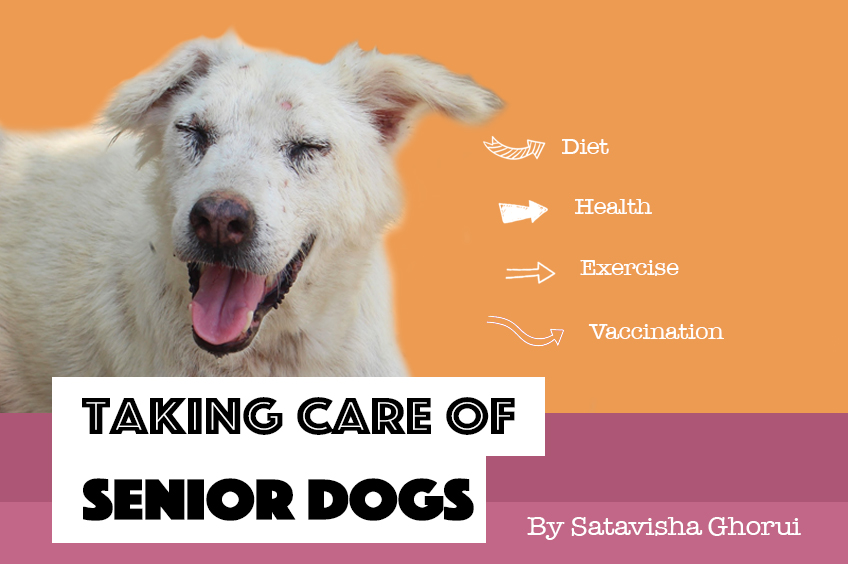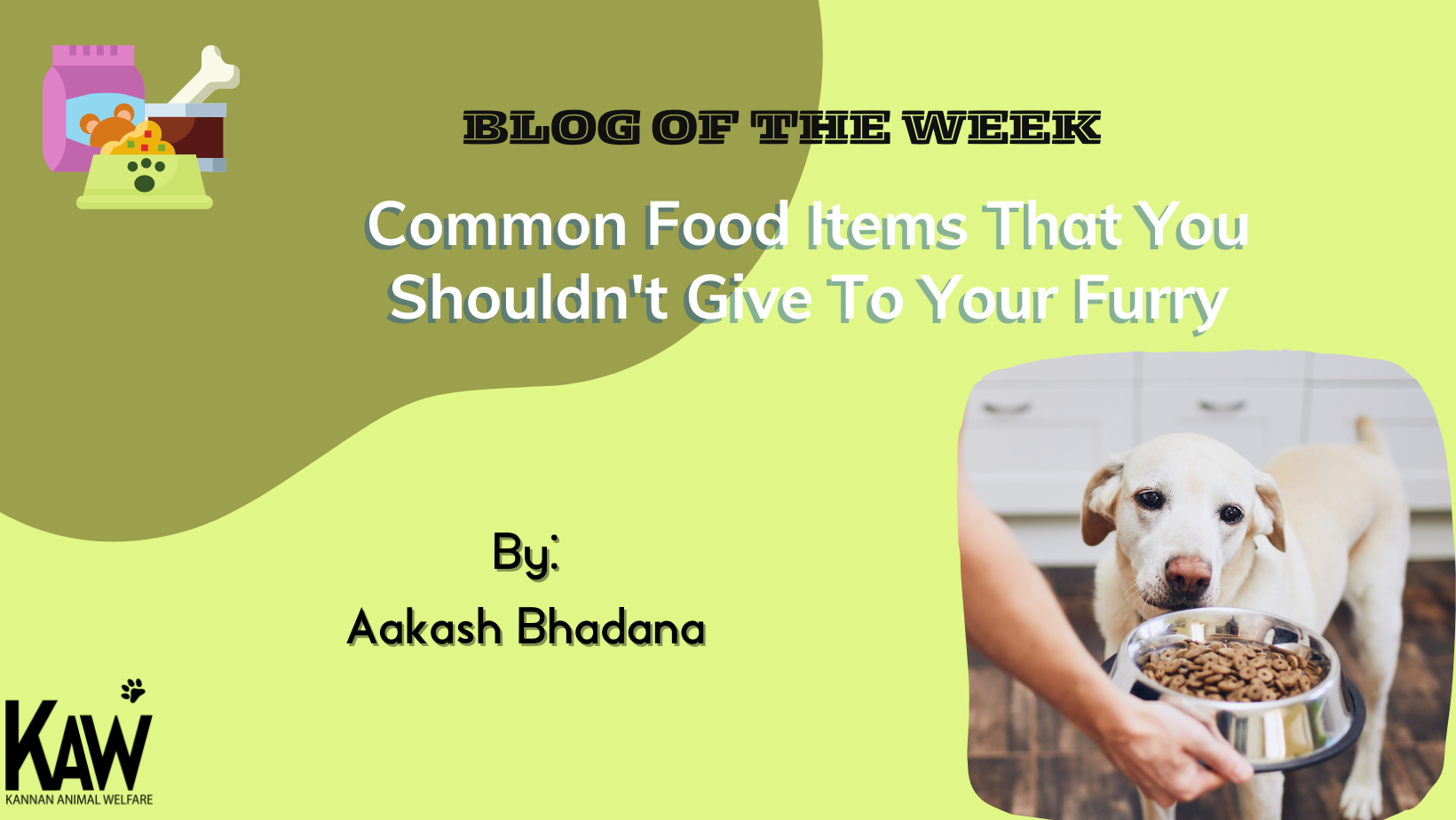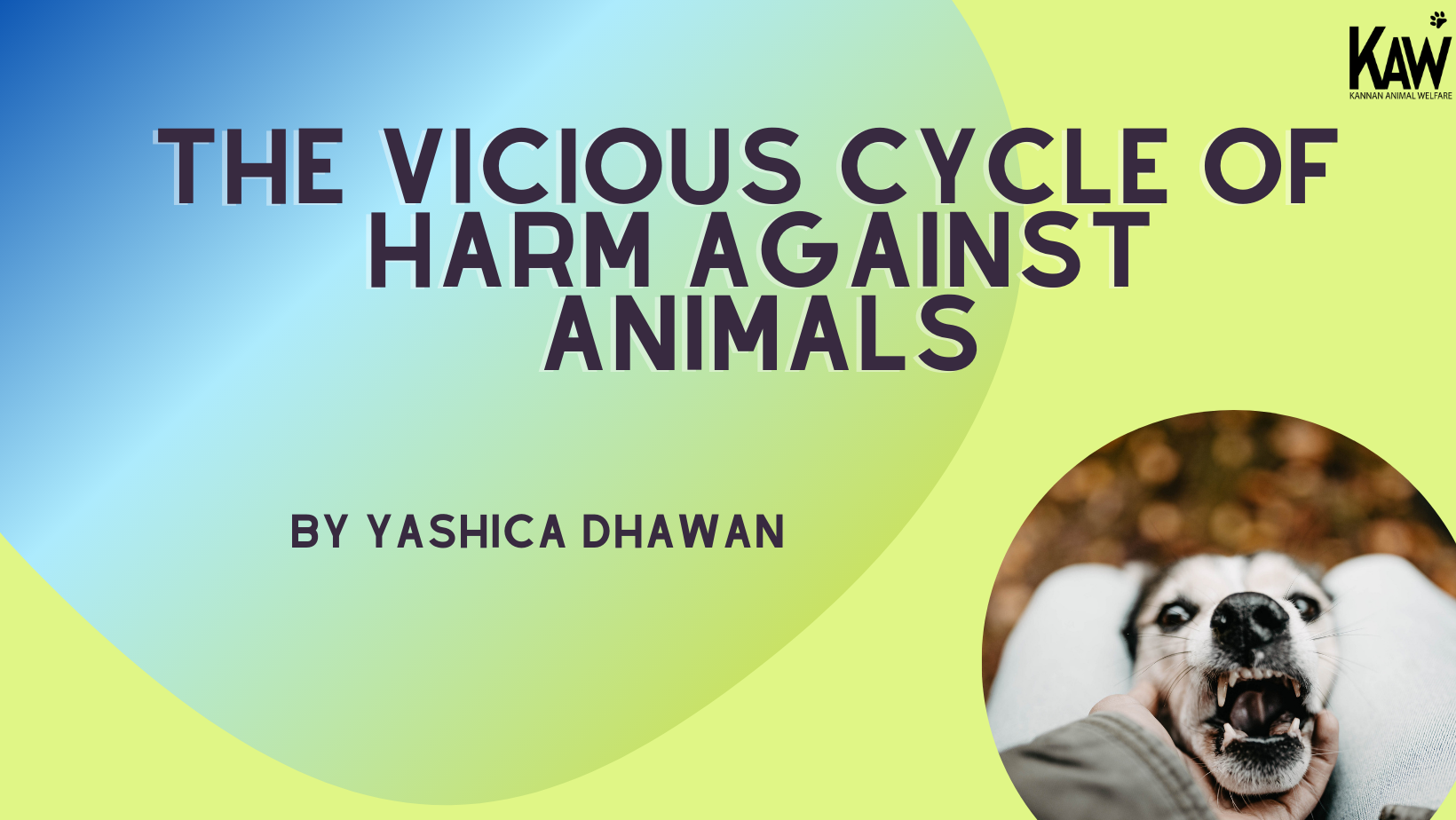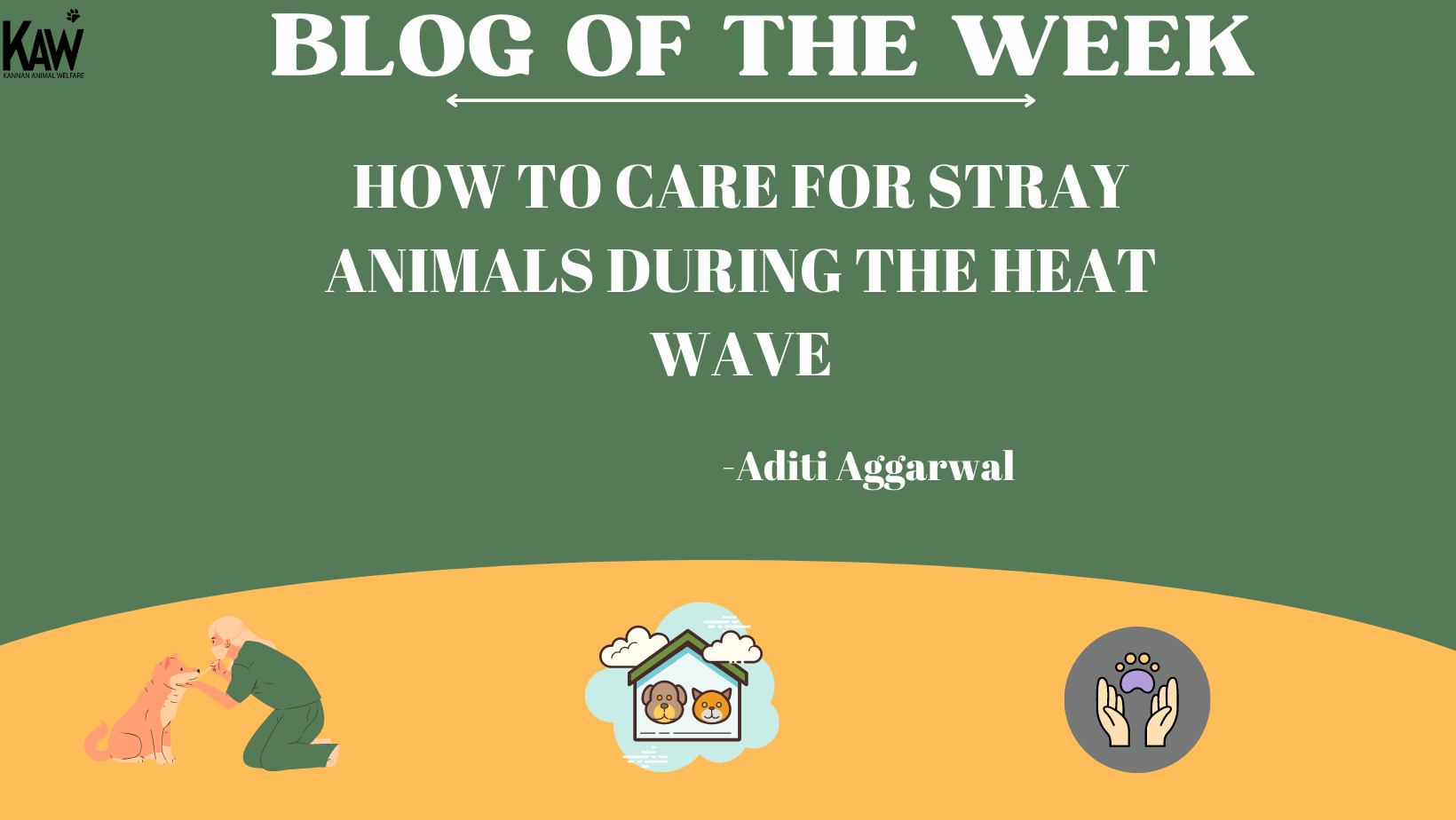Taking Care of Senior Dogs
By Satavisha Ghorui
If there’s something inevitable in life, it would surely be aging! Whether discussing humans, plants, and animals, everyone ages as the years start piling on. However, not all species are considered “old” or “elderly” at the same designated age range - even within the species itself!
When it comes to our furry friends, not all breeds of dogs are considered “seniors” in the same age group. Biologically, giant breeds have been known to age more rapidly than smaller breeds of dogs. A great dane, for example, will be considered as senior at roughly 5 or 6 years of age, while a chihuahua of the same age will be considered only middle-aged by then. Nutrition, genetics, environment, and various other factors also influence how fast your dog will age.
So, what care should you take if you’re dealing with a senior friend?
As your dog ages, he/she may develop arthritis that can cause him/her to become less mobile. There may be some difficulty that your dog faces while moving around, getting up, sitting, or finding a comfortable place to sleep, and this may tire him/her easily. Some dogs end up developing cataracts and may end up losing their eyesight completely if not cared for properly, while others may develop hearing problems or other degenerative diseases. Indeed, senior dogs remain at a higher risk of getting diabetes, kidney or liver diseases, cardiac ailments, muscle-mass loss, and obesity.
Hence, we must provide love, care, and support to our canine friends, so that we can help them age gracefully and comfortably. Caring for an elderly dog can be both rewarding and strenuous at the same time. It enriches the lives of both the dogs themselves and their human caregivers, but it can also become stressful for both parties if accurate information, advice, and support for aging are not at hand.
To help canine caregivers understand and provide the best care possible to their furry friends, we have collected a few tips and tricks to get the job done with ease:
Regular Vet Visits and Full-Body Evaluation
It is advised to get your dog examined by a veterinarian at least once or twice a year, even if he or she appears healthy from the outside, since some diseases may remain invisible to the naked eye. One must remember that prevention is always much cheaper than treatment!
Your dog’s current physical condition is extremely important to determine whether he or she is maintaining an ideal body weight, rather than becoming obese or malnourished. It is advised that you ask your vet to teach you how to evaluate your dog’s physical condition, exercise needs, and health at home as well.
Give Your Dog an Age-Appropriate Diet
A well-balanced diet plays an important role in maintaining your furry friend’s overall health, especially when they have started to age. Elderly dogs are often more at risk of developing obesity than younger pups since they no longer have the same energy and movement as they exhibited in their youth. Hence, it is important to single out the best diet for your dog, as per his/her age - one conveniently low in calories and fat, but high in nutritional value.
Maintain Your Dog’s Oral Health
Studies have shown that most dogs don’t receive proper dental care during their adult life; many even end up losing a couple of teeth. Dental care is a major part of grooming which should be performed regularly from a young age. To keep your dog’s teeth healthy and shining, you must either wash them daily or give your dog dental treats and take him/her to the vet once a year for a professional teeth cleaning.
Regular Exercise to Maintain Body-Weight
A little regular exercise can help your dog maintain his/her ideal body-weight (as per his/her age) and have a long-lasting beneficial impact on his overall health. It is advised that you ask your vet or pet trainer to give your furry friend an age-appropriate exercise program to keep his/her body moving even on an idle day.
Vaccination and Protection Against Parasites
Fleas, ticks, worms, and parasites are perhaps every pet owner’s worst nightmare! Especially when it comes to caring for older dogs, one must be very careful and continue administering proper treatments through vaccination and veterinary medications just like before. It is advised to consult the vet from time to time to understand your dog’s individual needs.
Regular Fur Trimming and Grooming
As your dog ages, so does his/her fur and skin; this once luxurious and shiny coat can end up shedding profusely or look dull and damaged if not groomed properly from the beginning. Senior dogs often suffer from conditions such as dry, flaky, and irritated skin that worsen with age if they are not provided care. One must bathe their dog with proper dog-shampoo, regularly brush their fur, and trim it to an appropriate length whenever necessary to prevent it from matting and tangling.
Providing a Special Accommodation
Elderly dogs often develop arthritis and various bone-joint disorders that considerably affect their mobility. Eyesight issues and blindness are other factors that prevent them from living their life to the fullest. In such cases, it is often advised that you provide your dog with soft bedding and an easily accessible bed that won’t require him/her to jump or climb, because the excess strain on joints at an advanced age may result in discomfort or further limit mobility.
Spend Quality Time with Your Old Friend
Aging is a completely natural phenomenon. But it is often painful and difficult to witness your beloved pup wither away as the days progress and he/she grows older and older. The best thing caregivers can do at such times is to live in the moment and cherish all the memories spent with your furry friends. Even as they age, dogs continue to feel anxious if they don’t find their human caregivers nearby them, and it impacts their mental wellbeing. Pets need their presence to feel content and to maintain both emotional and physical health.
So, even if your dog is unable to move, hear, or see any longer due to the progression of age, do not abandon him or her. Treat your canine in the same caring way as you treated him or her when they first came to you. Take them for walks, play with them, and give them treats to keep both their and your spirit alive every single day.
Remember...
Aging is a part of life, and it is of utmost importance that all caregivers of canine friends be prepared for it - emotionally and physically. As dogs becomes senior, they usually have less energy and enthusiasm to do things, and more affinity to sit idly, relax, or sleep. They may also develop various ailments related to age that prevent them from living comfortably. It is up to us, as caregivers, that we educate ourselves about canine lifestyle and health, so that we can facilitate our furry friends’ smooth transition into old age and adaptation to newer circumstances.
Why adopt a senior dog?
Adopting a senior dog is another way of ensuring that older dogs don’t get overlooked or neglected when it comes to having a family that cares for and supports you in your advanced age. Senior dogs at shelters look forward to a “home” just as much as any younger pup would. And the best part of adopting an old fellow is perhaps his/her experience! Older dogs are often easier to manage and more tame compared to their restless, younger counterparts. Seniors are thus much less likely to be an energetic menace like young pups can be, and more absorbent to new tricks because of their calm, experienced nature.
So, if you’re looking forward to having a good old companion, the senior furry friends at Kannan Animal Welfare (KAW) shelters will ensure that you don’t go back home empty-handed! KAW hosts some of the largest numbers of canines, including seniors, who are looking forward to getting adopted by families like yours. Please consider giving such souls a chance at living the life they deserved always, and we can assure you, you shall be rewarded handsomely!






